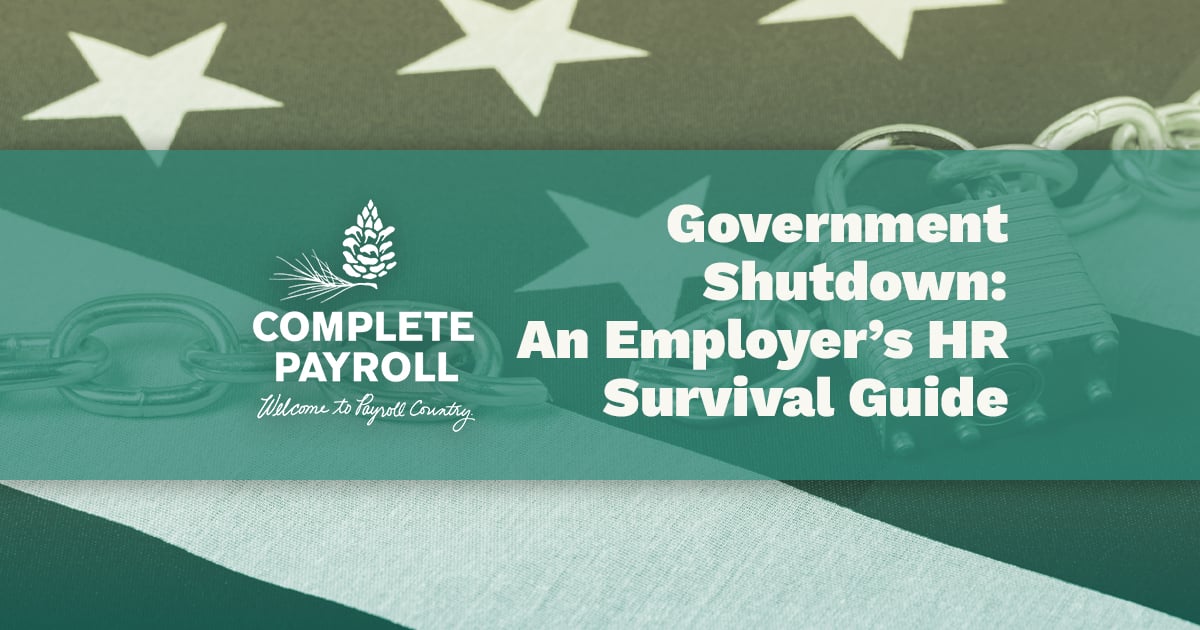
Bonus packages have been on the rise in recent years. While typically associated with larger companies, more small businesses have been offering bonus packages in order to compete for more skilled workers. A properly implemented bonus plan can be highly motivating for employees and help increase the retention of your most valuable workers.
There are many types of bonus programs, from sharing in company profits to individual bonuses for achievement. There are cash and noncash plans. You can even get awarded a bonus just for hiring in or getting a friend hired! Let’s take a look at some of the most common bonus programs.
In the video below, our Tax Manager Ashley Hamilton explains how bonuses and commissions are taxed. It provides a quick, yet thorough overview.
Profit Sharing Programs
Employees can share in the success of their company by sharing the profits. Typically this bonus is a percentage of the employee’s base salary. This type of program is good for increasing the awareness of how the company makes a profit. It gives the employee the attitude of, “How can I help my company make more money?” And that is a good attitude to have!
Gain Sharing Programs
Gain sharing programs, most typically in manufacturing companies, pay out according to statistical improvements in production. Gain sharing is based on the philosophy that the employees know the processes best and encourages workers to make improvements in both the quantity and quality of the product.
Spot Bonus Programs
Some companies give employees on the spot awards for an outstanding accomplishment. Spot bonuses can be given for project completion, above and beyond behavior, and as a special recognition.
Non-cash Awards
A non-cash award, such as a certificate or a trophy, can be effective at instilling pride in the employee and raising company morale. It is important to execute non-cash recognition correctly. A simple “employee of the month” award can come across as disingenuous and actually lower morale.
Sign-on Bonus
Sign-on bonuses have become more commonplace in companies and not just for star athletes. They can be effective at finding top talent when employment is low. The general purpose of giving a bonus to a new employee is to establish good will. A sign-on bonus can also help if the new employee left “cash on the table” with a previous employer. It can help a prospective employee to decide to make the move to your company if they are hesitant about leaving their current position.
Mission Bonus
A mission bonus is also known as a Task or Milestone bonus. It is generally given to a team after completing an important project, the kind of achievement that an employee would want to put on their resume. Task bonuses are used sparingly and should be a significant amount, such as one month of salary. Task bonuses have been used more frequently in software companies to encourage teams to meet tight deadlines.
Referral Bonus
When the job market is hot and qualified talent is scarce it is more difficult for a business to find the right candidates. Some businesses rely on recruiting companies and can end up paying 20-30% of the new hire’s salary to these recruiters. Many businesses find it more attractive to locate new talent through their current employees. By offering a referral bonus, employers can encourage their employees to help fill open positions. It also serves as a type of vetting process because no one wants to recommend a friend who is going to make them look bad!
Retention Bonus
Retention bonuses are less common and are usually under special circumstances, such as a merger or acquisition. If an employee is critical to the completion of a task or project an it is uncertain whether that employee is planning to stay with the company, a bonus can be offered to keep the employee with the company until a certain date or the completion of the project. The retention bonus is usually substantial, totaling up to 10-15% of the employees annual salary.
Holiday Bonus
Holiday bonuses can be a small gift, like a meat platter or candy basket, or can be in the form of cash, such as one month of salary. The holiday bonus is usually dependant on the culture of the company and isn’t tied to work performance of the completion of a task. Surveys show that not many companies give out holiday bonuses anymore and only about 22-27% of employed Americans expect to receive a seasonal bonus.
Most cash bonuses are run through payroll, so it is important for your payroll to be able to handle any bonus programs you plan to initiate. And remember, bonuses are still subject to taxation— the last thing you want is to get yourself into hot water for rewarding hardworking employees!
If you would like to discuss the intricacies of awarding bonuses, Complete Payroll’s team of payroll experts are happy to hear from you! Click here to contact us today!



















 Get Instant Blog Notifications
Get Instant Blog Notifications


